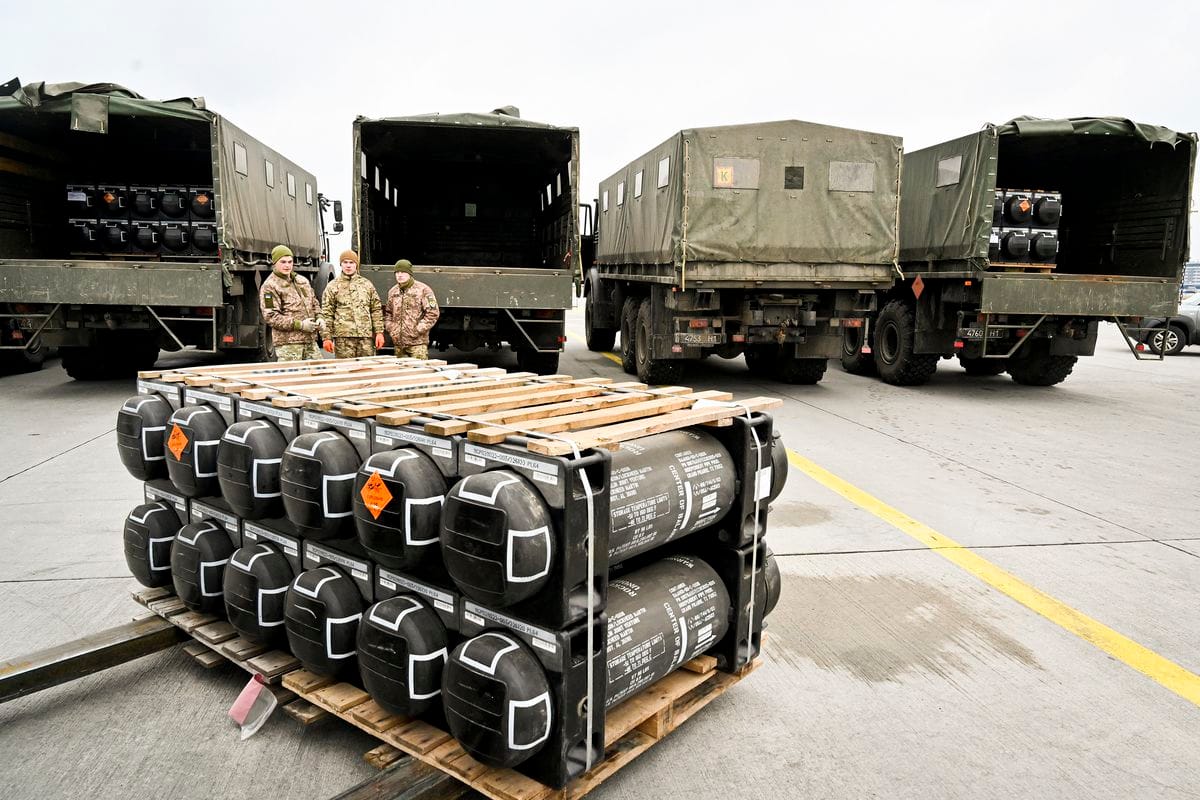Table of Contents
If you don’t have a Silver level membership yet you are missing out on our Insight Politics articles.
Today is a FREE taste of an Insight Politics article by writer Nathan Smith.

Russia, Ukraine and the Forever McWar
Modern warfare is about spreadsheets, not bullets
Now that we’ve hit 240+ days since Russian troops first entered Ukraine to prosecute a “special military operation”, what’s really going on over there?
Three-quarters of a year is enough time to notice some patterns. But it’s also long enough to have those patterns disappear in the pile of noise. The fog of war is truly a pain in the behind; there’s no such thing as perfect intelligence but the edges of this conflict are there for those who know what to look for.
It’s important to remember that no one goes to war because they want to; they go to war because they have to. Beginning from first principles – in this case, the core geography of both Russia and Ukraine – both sides have plenty of reasons for aggression and ferocious defence. But I guess it depends on what is meant in this context by “both sides”.
From day one (and starting the clock from the correct time is crucial for this conflict. You could start it in February, or go back to 2014, 2008, 1999, 1991, 1947, 1917 or even 1789), it was clear that the main protagonists were factions in Moscow against factions in Washington. Ukraine just happens to be the unlucky battlefield where these two belligerents knuckled out their rivalries this time around.
Only regime journalists and “low information” observers think Kiev is calling the shots in this war. Kiev is little more than a postal address right now. Nobody in the Ukrainian Government can even spell the word “sovereignty”, let alone wield it.
Ukrainian president Volodymyr Zelenskyy is doing exactly what his patrons tell him to do. Those patrons are in Whitehall, Washington and Tel Aviv. They are faceless and have the bureaucratic smell of inkjet printers, overheating computer fans and stale air conditioning. These patrons are peppered across dozens of departments and ministries, and I would be surprised if any single one knew of the existence of 30% of the others. These people work with spreadsheets. They see spreadsheets in their dreams.
A few months ago, Russian generals said it felt like they were fighting an enemy from the future. They are correct. Their enemy is waging a very different kind of war in Ukraine, one which they have been perfecting for at least three decades in Iraq (twice), Afghanistan, Somalia, Libya and dozens of other countries. Russia’s enemy does not aim to achieve victory. This enemy is bent on creating a “forever war” driven by spreadsheets and the needs of both Raytheon and McDonald’s.
The point of a forever war is to move money, people and assets away from where they presently are to where they need to be, all without anyone who wants to avoid these things being moved noticing what’s going on. If that sounds convoluted, here’s the simple version: a forever war is about balancing the books back in America and Britain. And yes, the nerdy bookkeepers are in on the scam as well. Hell, they likely suggested the damn idea to the Pentagon and MoD.
A forever war affords governments a couple of incredibly important opportunities.
Firstly, a forever war is a cover to invent “displaced persons” and move them from one part of the globe to another. According to the liars with the spreadsheets, people are all the same. So if the birth rate in advanced countries like the US is falling, and that risks undermining things like welfare, debt repayments and pensions, then the spreadsheet says those gaps must be filled by importing people. But you can’t just invite them, they must be “refugees”. And refugees come from war, so…
Another fantastic opportunity of a forever war is that the velocity of money slows down if newly printed USD enters the US economy from overseas, thereby delaying crippling inflation rates. By funnelling those new dollars into a forever war, who knows where that money will end up? And that’s the whole point. Ukraine has received more than $50 billion in financial aid so far just from the US. But the real figure laundered through this war likely has another two zeroes tacked on the end, at least.
The US Government knows all that money is eventually coming back to the US. It might seem counterintuitive, but all foreign aid – especially wartime aid – is actually an alternative government jobs programme. The destination of that money is not meant for Ukraine, it is meant for the good people of Arkansas, California and Idaho.
How does this work? Let’s use Israel as an example.
In many ways, Israel is the 51st US state, just not in the way that conspiracy theorists think. When Tel Aviv gets $3 billion in annual grants, the rider on that deal is that the funds must be spent on buying US military equipment. The factories that produce Israel’s weapons are based in the US. And these factories employ millions of hardworking Americans. At the end of the workday, when those workers finish building new missiles, they spend their hard-earned salaries on McDonald’s burgers and packs of Bud Light. McDonald’s and Raytheon are integral parts of the US welfare system.
The US Government doesn’t really have an alternative. If it gave that $3 billion directly to poor Americans, or straight to McDonald’s, the price of a hamburger would quickly balloon to $978.87. That’s how inflation and money velocity works. What matters is not how much money you have, but what proportion of the total money supply you have. Money becomes worth-less the more of it there is. Forever wars help spread the money around as wide as possible so that it slows down.
Former US defence secretary Robert McNamara was ahead of his time when he tried to win the Vietnam War with a spreadsheet. He was good at maths, but Washington couldn’t adapt quickly enough to McNamara’s methods. If he were reincarnated today, however, he would fit right in because Washington has become extremely adept at fighting wars with Excel.
Russia’s generals are calculated, efficient and experienced in fighting a land war with artillery barrages, drone surveillance and light infantry. What it has no weapons for, however, is fighting an enemy that aims to win by not letting the war end. Russian President Vladimir Putin’s biggest mistake 240 days ago was thinking modern warfare is about explosions, rockets and boots on the ground. Only now is he realising that modern warfare is about spreadsheets, not bullets.
Russia’s enemy is so far in the future that it has no peer rival. China perhaps is its closest rival, but even China’s spreadsheet-style warfare is still quite primitive. China’s goal with military spending and foreign aid is to keep its unbalanced population of young males distracted with busywork until they reach age 35. Beijing’s money printing and aid programmes are goal-oriented, not systemic.
Russia’s enemy, on the other hand, embodies what Dwight D. Eisenhower warned about with the “military-industrial complex.” That neologism wasn’t about a shadowy cabal of string-pullers secretly manipulating the US Government for their personal profit.
Rather, Eisenhower’s chief concern was that the debt-based US economy would become dependent on a global machine of money laundering of which the military was one small cog. The “military” is pretty obvious. But most don’t realise that the “industry” Eisenhower referred to was McDonald’s, Microsoft, Apple, Ford and others. These companies exist to facilitate American welfare payments.
Even climate change is a result of the military-industrial complex. For example, do you know why Japan exports so many cars to New Zealand? It’s not because Tokyo wants to curb carbon emissions. The entire point of this policy is to create recurring demand so that Japan’s automakers stay in business. If they fail, then a huge chunk of Japan’s workforce will be jobless. What happens then? Tokyo won’t risk finding out. Hence, “sustainability”. Sorry, did you think governments were moral?
The truth is, we live in a planned obsolescence economy, not because we want to, but because we have to. Each of our salaries comes with the proviso that we spend a decent chunk on consumer goods that are designed to fail every few years. But even this isn’t enough to control the corrosive effects of compound interest that is a result of our drunken money printing.
The spreadsheet maestros tucked deep in our ministries and departments invented a plan to solve this problem: invade the world and invite the world. This plan involved importing a bunch of young people (who will spend like crazy), encouraging sexually deviant lifestyles (to boost consumption) and creating future wars (to slow down the speed of money). It worked for a while, but then again, so did money printing. And look where that got us today.
Those Russian generals were correct. They really are fighting an enemy from the future. This future, where everything is diluted into a line item on an Excel spreadsheet, certainly isn’t one I would choose. But who among us will be brave enough to pull the plug?
If you enjoyed that FREE taste why not subscribe to a SILVER level membership today?
You will not only get access to Insight Politics articles like the one above but you will also gain access to all our puzzles, SonovaMin and BoomSlang’s fantastic cartoons, and our private members’ forum MyBFD as well as enjoying ad-free viewing.
$25 a month ($6.25 a week) (89c a day)
$300 a year









